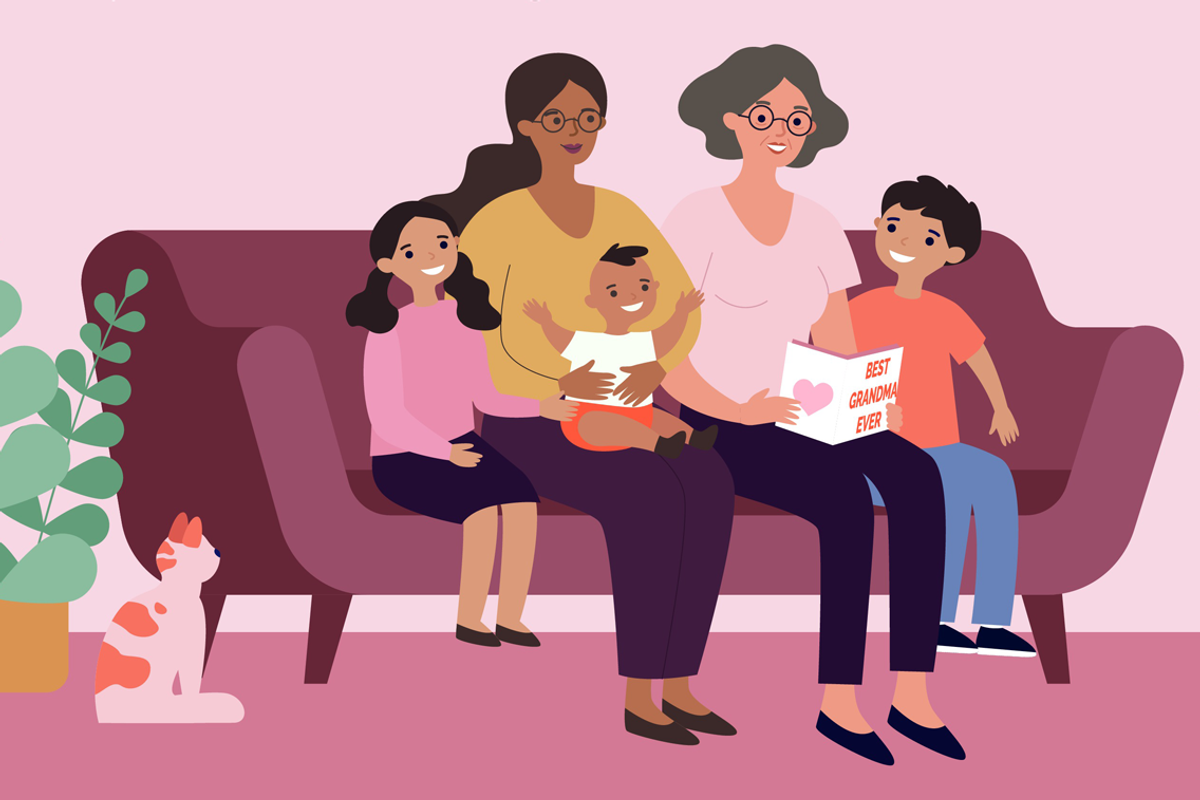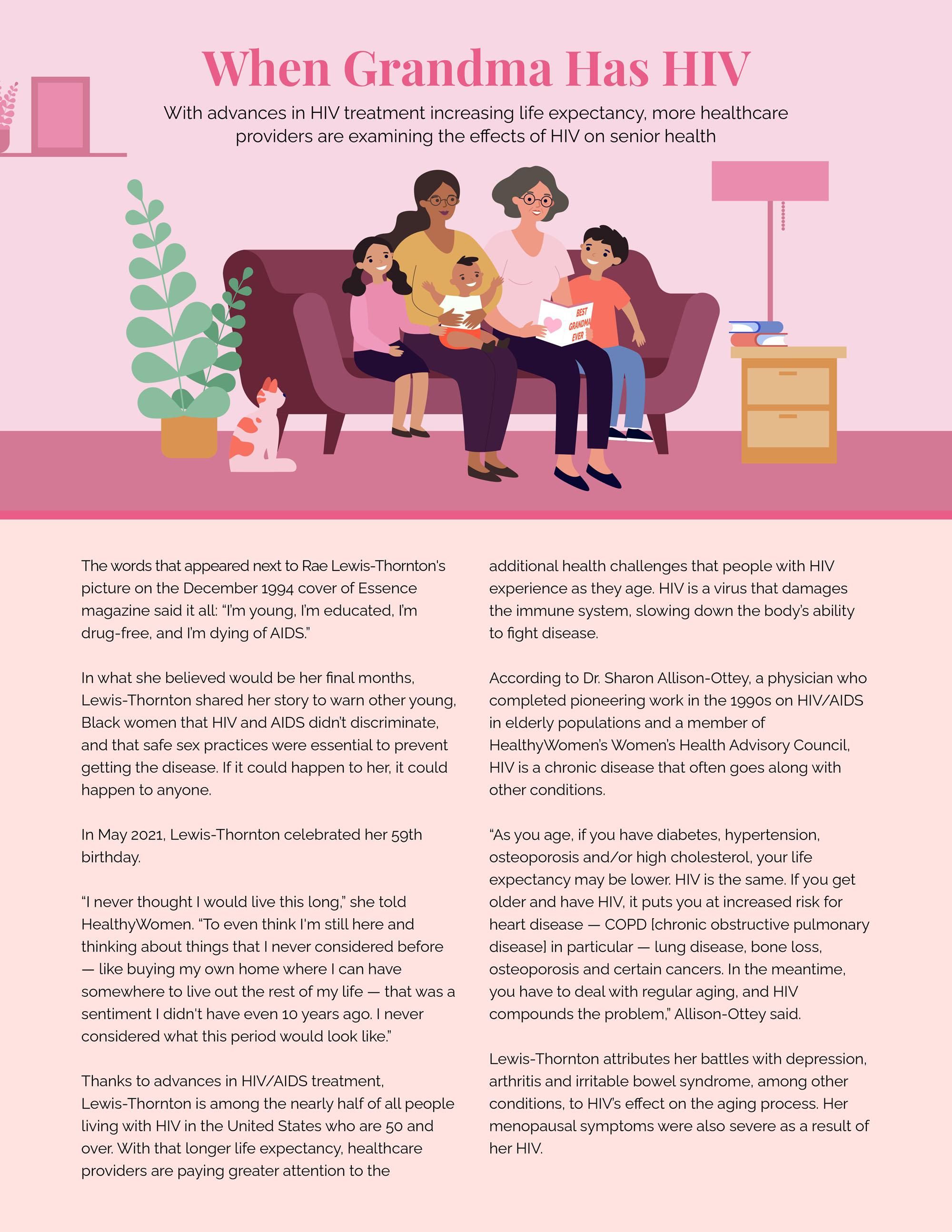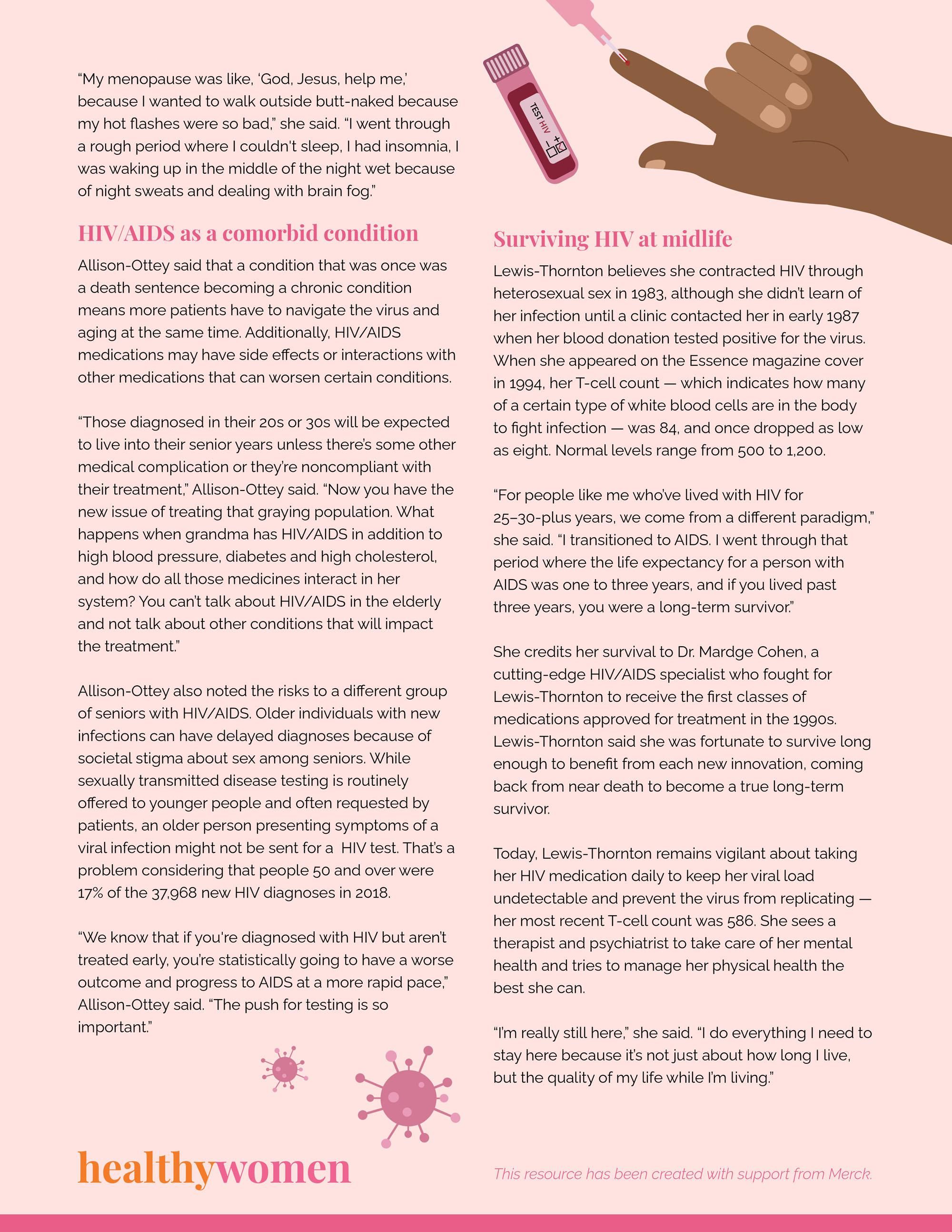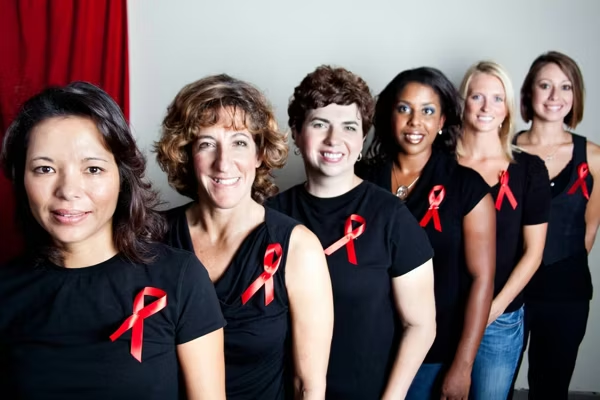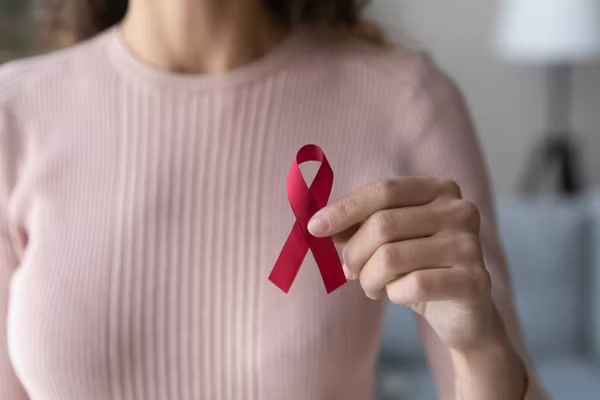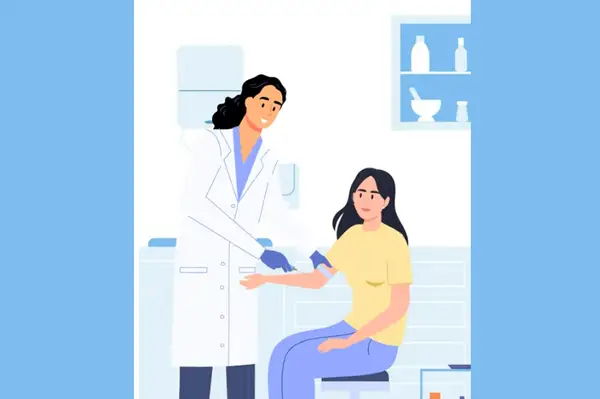The words that appeared next to Rae Lewis-Thornton's picture on the December 1994 cover of Essence magazine said it all: “I’m young, I’m educated, I’m drug-free, and I’m dying of AIDS.”
In what she believed would be her final months, Lewis-Thornton shared her story to warn other young, Black women that HIV and AIDS didn’t discriminate, and that safe sex practices were essential to prevent getting the disease. If it could happen to her, it could happen to anyone.
In May 2021, Lewis-Thornton celebrated her 59th birthday.
“I never thought I would live this long,” she told HealthyWomen. “To even think I'm still here and thinking about things that I never considered before — like buying my own home where I can have somewhere to live out the rest of my life — that was a sentiment I didn't have even 10 years ago. I never considered what this period would look like.”
Thanks to advances in HIV/AIDS treatment, Lewis-Thornton is among the nearly half of all people living with HIV in the United States who are 50 and over. With that longer life expectancy, healthcare providers are paying greater attention to the additional health challenges that people with HIV experience as they age. HIV is a virus that damages the immune system, slowing down the body’s ability to fight disease.
According to Dr. Sharon Allison-Ottey, a physician who completed pioneering work in the 1990s on HIV/AIDS in elderly populations and a member of HealthyWomen’s Women’s Health Advisory Council, HIV is a chronic disease that often goes along with other conditions.
“As you age, if you have diabetes, hypertension, osteoporosis and/or high cholesterol, your life expectancy may be lower. HIV is the same. If you get older and have HIV, it puts you at increased risk for heart disease — COPD [chronic obstructive pulmonary disease] in particular — lung disease, bone loss, osteoporosis and certain cancers. In the meantime, you have to deal with regular aging, and HIV compounds the problem,” Allison-Ottey said.
Lewis-Thornton attributes her battles with depression, arthritis and irritable bowel syndrome, among other conditions, to HIV’s effect on the aging process. Her menopausal symptoms were also severe as a result of her HIV.
“My menopause was like, ‘God, Jesus, help me,’ because I wanted to walk outside butt-naked because my hot flashes were so bad,” she said. “I went through a rough period where I couldn't sleep, I had insomnia, I was waking up in the middle of the night wet because of night sweats and dealing with brain fog.”
HIV/AIDS as a comorbid condition
Allison-Ottey said that a condition that was once was a death sentence becoming a chronic condition means more patients have to navigate the virus and aging at the same time. Additionally, HIV/AIDS medications may have side effects or interactions with other medications that can worsen certain conditions.
“Those diagnosed in their 20s or 30s will be expected to live into their senior years unless there’s some other medical complication or they’re noncompliant with their treatment,” Allison-Ottey said. “Now you have the new issue of treating that graying population. What happens when grandma has HIV/AIDS in addition to high blood pressure, diabetes and high cholesterol, and how do all those medicines interact in her system? You can’t talk about HIV/AIDS in the elderly and not talk about other conditions that will impact the treatment.”
Allison-Ottey also noted the risks to a different group of seniors with HIV/AIDS. Older individuals with new infections can have delayed diagnoses because of societal stigma about sex among seniors. While sexually transmitted disease testing is routinely offered to younger people and often requested by patients, an older person presenting symptoms of a viral infection might not be sent for a HIV test. That’s a problem considering that people 50 and over were 17% of the 37,968 new HIV diagnoses in 2018.
“We know that if you're diagnosed with HIV but aren’t treated early, you’re statistically going to have a worse outcome and progress to AIDS at a more rapid pace,” Allison-Ottey said. “The push for testing is so important.”
Surviving HIV at midlife
Lewis-Thornton believes she contracted HIV through heterosexual sex in 1983, although she didn’t learn of her infection until a clinic contacted her in early 1987 when her blood donation tested positive for the virus. When she appeared on the Essence magazine cover in 1994, her T-cell count — which indicates how many of a certain type of white blood cells are in the body to fight infection — was 84, and once dropped as low as eight. Normal levels range from 500 to 1,200.
“For people like me who’ve lived with HIV for 25–30-plus years, we come from a different paradigm,” she said. “I transitioned to AIDS. I went through that period where the life expectancy for a person with AIDS was one to three years, and if you lived past three years, you were a long-term survivor.”
She credits her survival to Dr. Mardge Cohen, a cutting-edge HIV/AIDS specialist who fought for Lewis-Thornton to receive the first classes of medications approved for treatment in the 1990s. Lewis-Thornton said she was fortunate to survive long enough to benefit from each new innovation, coming back from near death to become a true long-term survivor.
Today, Lewis-Thornton remains vigilant about taking her HIV medication daily to keep her viral load undetectable and prevent the virus from replicating — her most recent T-cell count was 586. She sees a therapist and psychiatrist to take care of her mental health and tries to manage her physical health the best she can.
“I’m really still here,” she said. “I do everything I need to stay here because it’s not just about how long I live, but the quality of my life while I’m living.”
This resource has been created with support from Merck.
- Stories of Black women aging with HIV: 'My life wasn't what I hoped it ... ›
- How Does HIV Affect Women—Now and in the Future ... ›
- HIV/AIDS - HealthyWomen ›
- HIV and Older Women - HealthyWomen ›
- HIV and Older Women - HealthyWomen ›
- The Connection Between HIV and Mental Health in the Older Adult - HealthyWomen ›
- Growing Older With HIV - HealthyWomen ›
- I Believe I’m Aging Faster Because I Have HIV - HealthyWomen ›
- Fight Against HIV Stigma — Your Words Can Make a Difference - HealthyWomen ›
- Lucha contra el estigma del VIH: Tus palabras pueden marcar la diferencia - HealthyWomen ›
- It May Come as a Surprise, but Older Women Get HIV, Too - HealthyWomen ›

